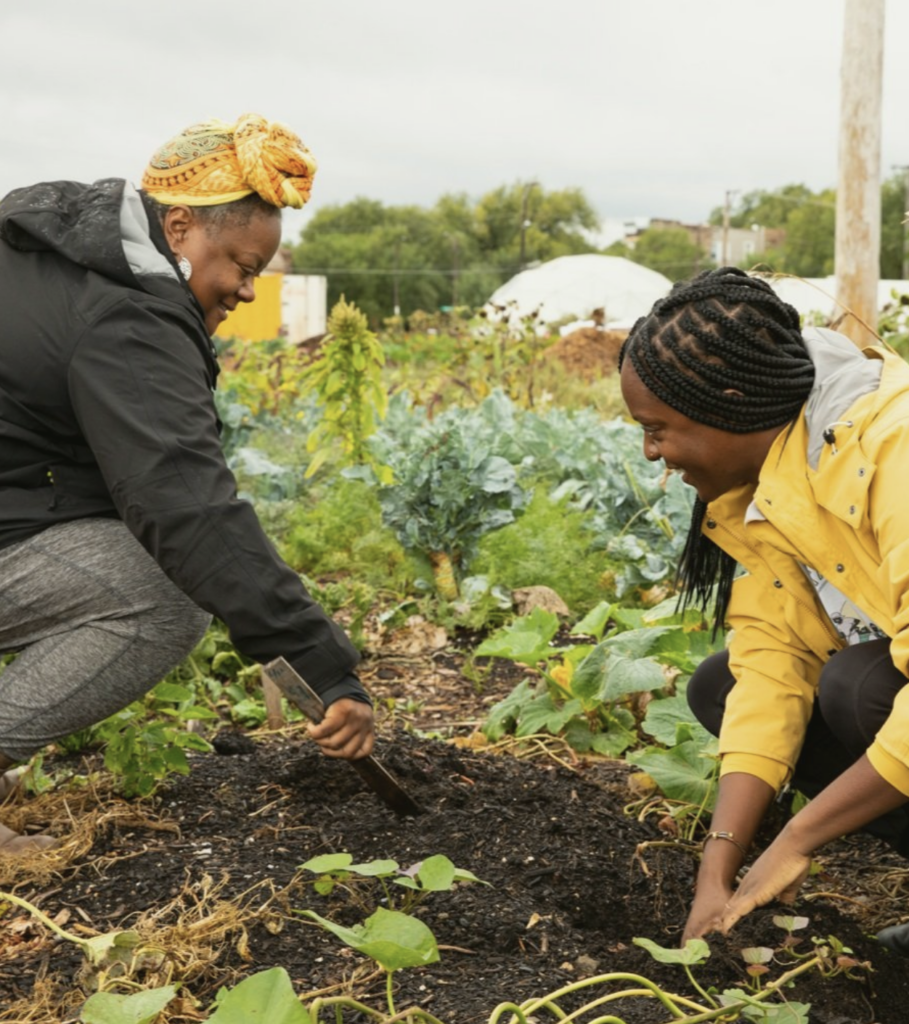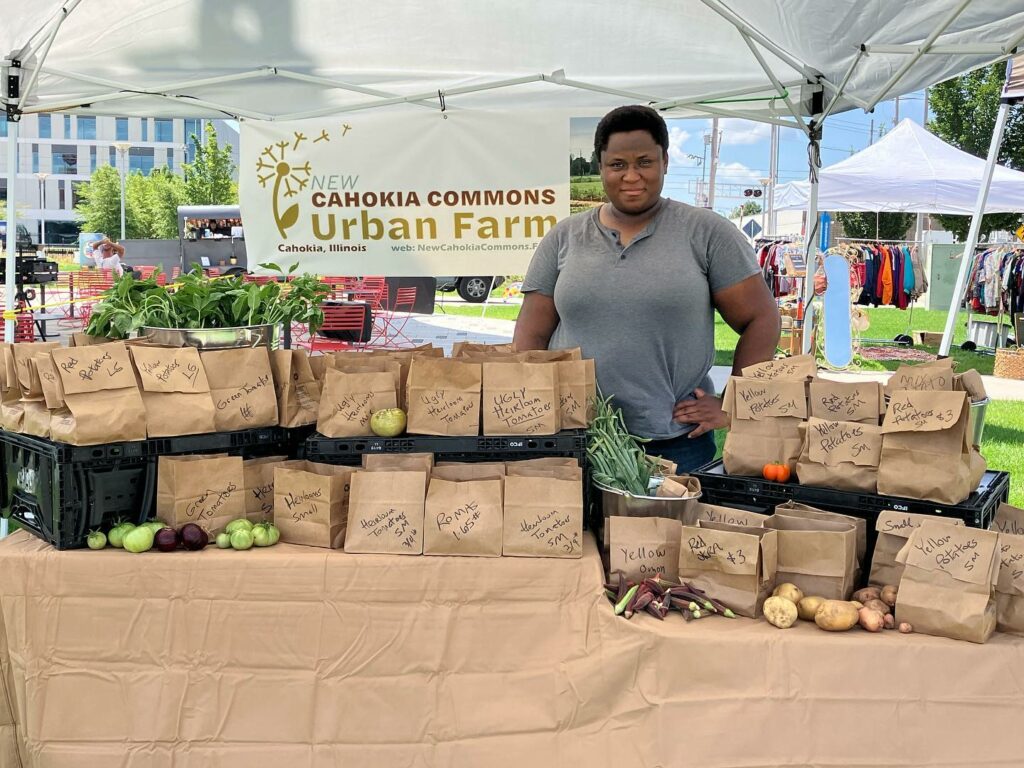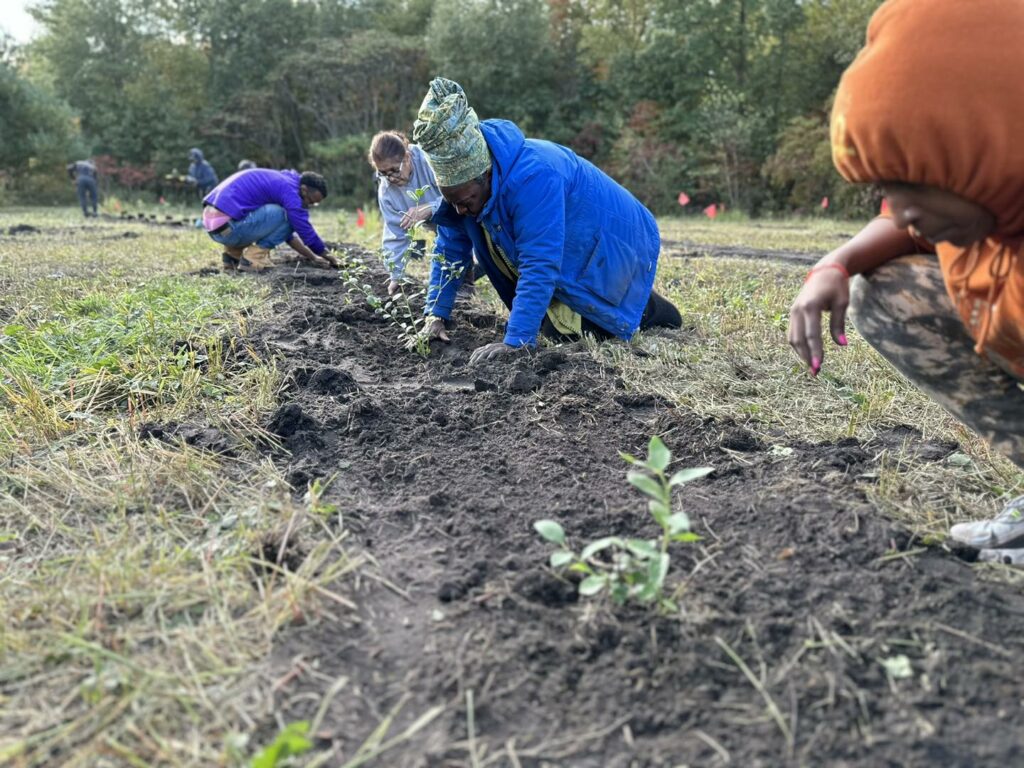It is well known that farmers of color are under-represented in the United States. But in recent years, BIPOC (Black, Indigenous, and people of color) farmers in Illinois have joined the growing movement of young farmers, and are finding ways to build equitable food systems, grow their communities, and promote resilience across Illinois.
There have been a variety of programs established to support BIPOC farmers in Illinois, which includes the following three programs:
- The Illinois General Assembly declared April 1-6, 2024 as Black Farmers Week in the State of Illinois. The goal is to encourage the people of Illinois, and their representatives in government, to learn about the history of Black farming communities and the contributions made by African Americans to agriculture in the United States. The 2nd Annual Black Farmer Lobby Day is scheduled to take place on May 15, 2024, in Springfield, Illinois.
- The Illinois-EATS was established as an opportunity to unite Illinoisans invested in building a resilient food system, and to build a collaborative network of food system support. Illinois is committed to products from socially disadvantaged growers/producers and encouraging the distribution of culturally responsive foods.
- The Illinois Department of Agriculture is receiving $6 million from the USDA to build resilience in the middle of the food supply chain through the Resilient Food Systems Infrastructure program. Funding will support projects that establish or expand the processing, storage, aggregation, and distribution of local food in Illinois.
In this month’s blog post, we are honored to shine a light on three Illinois farms working hard to build, grow, and create resilience in their communities: Sistas In The Village,New Cahokia Commons Urban Farm, and Black Oaks Center.
BUILDING AN EQUITABLE FOOD SYSTEM: Sistas In the Village

Sistas In The Village (SITV) co-founders Mecca Bey and Nyabweza “Bweza” Itaagi began farming together in early 2020 on a shared 7+ acre site as part of the Farmers for Chicago program run by the Urban Growers Collective. Located on Chicago’s Southside, Urban Growers Collective is a Black- and women-led nonprofit that works to build equitable food systems.
In April 2022, Bey and Itaagi transitioned their farm to a new location, planting new roots in a one-acre plot on South Ada Street in Englewood.
“When we think of our farm, we see the lineage of our people, from the various traumas that started this journey to the healing where our journey continues. The farm continues to evolve just as we do as individuals.”
At SITV, Bey and Itaggi value community empowerment, land stewardship, and ancestral connection. “Access to fresh, locally grown and affordable food is a basic human right, and it’s our honor to begin growing food for our community alongside an incredible network of Black, Brown, and Indigenous land stewards.”
In October 2023, Bey and Itaggi deepened their roots in Englewood by becoming the first urban farm to receive the produce merchant’s license for urban agriculture. The license was co-created by the Chicago’s Food Equity Council, and allows growers to sell directly to communities from stands in an urban farm or community garden.
As the 2024 growing season approaches, make a point to plan to shop the SITV stand at the Englewood Village Market as well as visit their farm located at 5800 S. Ada St. in Chicago. Learn more about the organization and ways you can help them further their mission by visiting their website, Facebook, and Instagram.
GROWING COMMUNITY: New Cahokia Commons Urban Farm

New Cahokia Commons Urban Farm (NCCUF) was founded in 2021 in Cahokia Heights, Illinois. Beginning with just three people, no utilities or buildings on site, a couple of shovels, spades, and rakes, the non-profit organization has grown exponentially to include a variety of programs and services to help BIPOC individuals address trauma through entrepreneurial enterprises nurtured through real access to land. These enterprises include:
- Beginning farmer training and farm lease sites that make land available to BIPOC farmers
- Educational programs engaging children, teens and adults in agriculture
- Peer Networks that support learning through tours, talks, and training
- Community Supported Agriculture (CSA)
Everything that NCCUF does starts with the soil. ”We go beyond sustainability and aim for regeneration – for a holistic, healed community on the land and for its people.” In 2024, the organization is working to conduct various trials to explore methods to improve crop production, build climate resilient farming systems, try new or unfamiliar crops, establish cover crops and native trees, as well as initiate pollinator initiatives to support native ecology and feed their now five acres of top-grade farmland.
Keep up with NCCUF’s programs, events, and plans for growing in 2024 on their website, Instagram, and Facebook.
PROMOTE RESILIENCE: Black Oaks Center

In 2006, the Wright-Carter family established Black Oaks Center (BOC), a 10-acre teaching farm on the 40-acre eco-campus located in the historic Black farming community of Pembroke Township, Illinois.
The residents of Pembroke Township are stewards of the Kankakee Sands, one of the most prized ecosystems in Illinois and home to the endangered dwarfed black oaks. “We are honored to carry forward this tradition of stewardship, which dates back to the people indigenous to this land, the Potawatomi.”
Rooted in their mission of facilitating communities in being resilient, BOC emphasizes four skills building tracks as their foundation for being prepared to thrive in a post-carbon affected world.
These four tracks include:
To carry out the four tracks, the BOC team works tirelessly to provide education, training, and resources to marginalized communities, promoting self-sufficiency and resilience. Through their innovative programs and initiatives, the BOC team strives to create a more equitable and sustainable future for all. “Community resilience ensures that essential needs like food, energy, housing, safety, and overall well-being are met even during times of crisis. When communities can address these needs independently, they are less reliant on external resources and can maintain their survival and stability.”
Get connected with BOC by subscribing to their newsletter and reading their blog. You can also get involved with BOC by attending an event and supporting their food hub (which will soon include a mobile market!).
Visit the Buy Fresh Buy Local Illinois online directory to find local food near you. Search by location, affiliation, certification, and more, or navigate inside the map to find local products and businesses across the state.
Get Listed with Buy Fresh Buy Local Illinois
Are you a farm, farmers market, farm-to-table restaurant, or grocery store that sells local products purchased directly from local farms? Get listed in Illinois’ most trusted guide to local food. Your listing is absolutely free. Buy Fresh Buy Local Illinois is a local foods marketing project led by a coalition of organizations across the state working to promote local farms and food businesses like yours. Get listed and start reaching new customers today!
This story is written by Natalie Kenny-Marquez on behalf of the Buy Fresh Buy Local Illinois Coalition.

